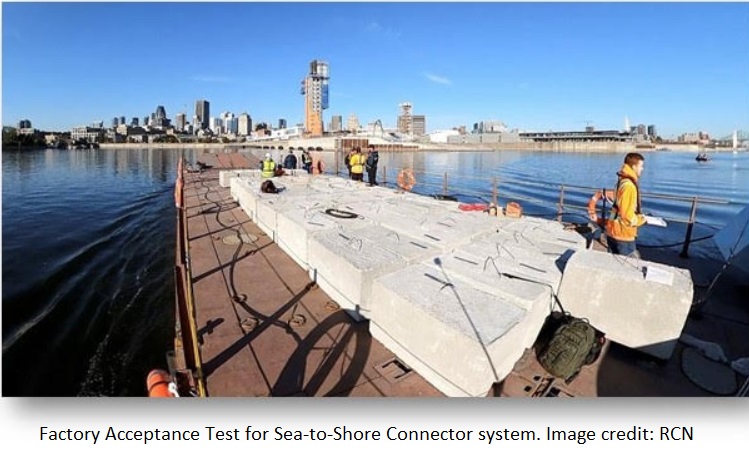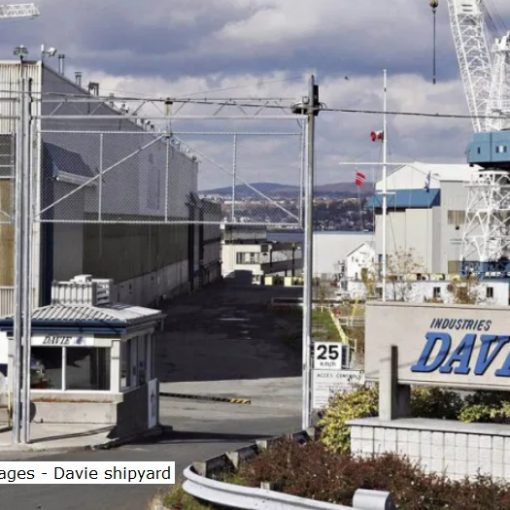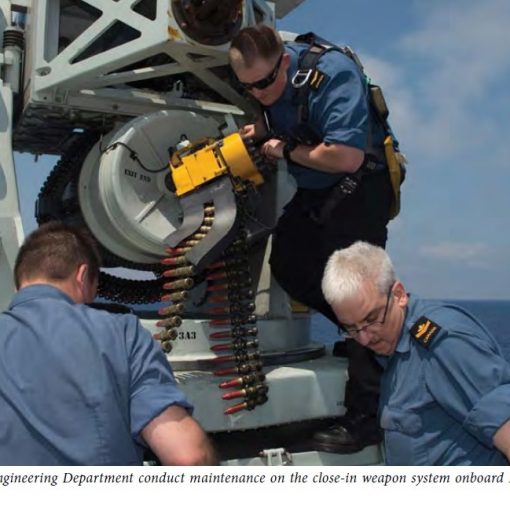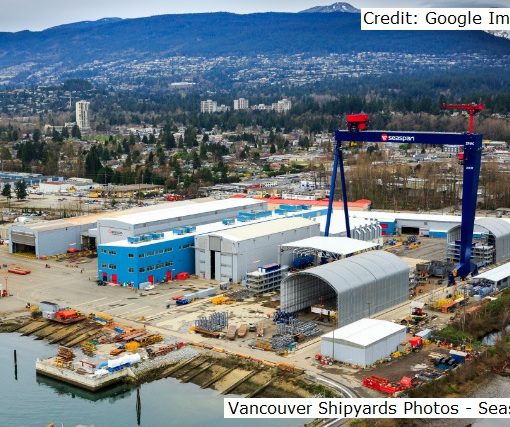RCN Public Affairs, 09 November 2021.
The Project Management Office for the Joint Support Ship participated in a successful in-water Factory Acceptance Test for the first of four Sea-to-Shore Connector systems. Constructed by Navamar in the Port of Montreal, these systems will give the future Protecteur Class an important amphibious capability.
The trial demonstrated compliance with key requirements such as top speed under load, turning radius, and assembly timings in a real-world environment.
The Sea-to-Shore Connectors will be able to carry 50 tonnes of cargo at a speed of 5 knots in sheltered harbours where the ship cannot come alongside. Its beaching capabilities, with roll-on/roll-off ramp will provide the Royal Canadian Navy (RCN) a high degree of flexibility in supporting humanitarian assistance, disaster relief and/or joint operations ashore. The modular pontoon barges are assembled in the water with the flexibility to load anything from vehicles to sea containers of supplies, and subsequently shuttle these to shore.
Once the system components have been blasted and painted according to RCN ship colour schemes, the system will be delivered to Esquimalt early in the new year, followed by Initial Cadre Training, and Acceptance Trials in the spring.






2 thoughts on “PMO JSS attends in-water Factory Acceptance Test for Sea-to-Shore Connector”
A lie claiming they have amphibious capability. No troop carrying capacity and deck space for a few containers. Where is the ramp claimed in the release?
I concur with the comment. Having commanded an amphibious exercise some years ago using a LCVP off an AOR, there is need for a ramp and protection for troops during the movement from ship to shore. I see neither in the photograph.